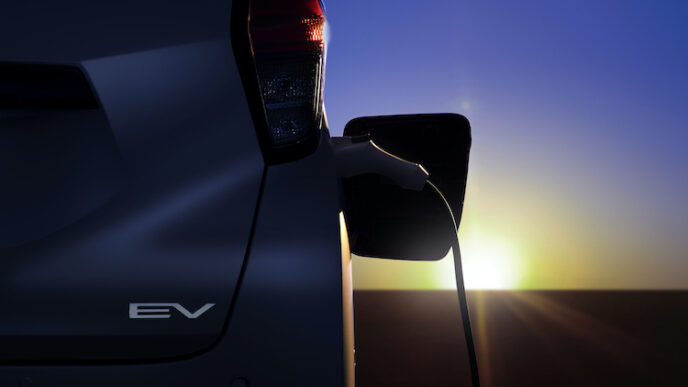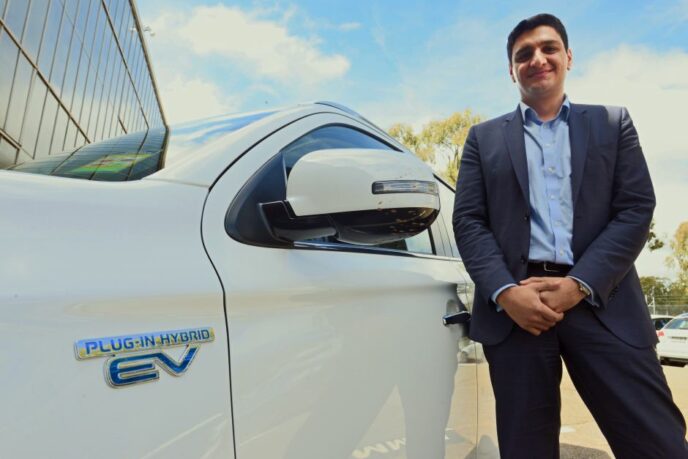
Following six weeks of negotiations, the Albanese Government has made adjustments and revised the National Vehicle Efficiency Standard (NVES) consultation option while ensuring what it believes is a sustainable and effective standard.
The Motor Trades Association of Australia (MTAA), and the Electric Vehicle Council (EVC), have welcomed the Federal Government’s proposed amendments to the draft NVES legislation.
The changes include:
• Recalibration of the targets for Utes, vans and some 4WDs from passenger vehicles into the light commercial vehicle category. Some heavy 4WDs have a ladder frame and towing capacity of more than 3 tonnes. The majority of SUVs would remain in the PV class.
• Adjusting the headline limit for trucks, vans and some 4WDs
• The timing of implementation. While the commencement of the scheme will still commence on 1 January 2025, penalties will not begin until 1 July 2025
• Adjust the upper breakpoints by 200kg for LCVs to 2400 Kg and Passenger Vehicles (PVs) to 2200 Kg.
The SUV models moving to the light commercial vehicle category include the Toyota Landcruiser, Nissan Patrol, Isuzu-Mu-X, Mitsubishi Pajero Sport, Toyota Prado, Lexus LX, Mercedes-AMG G 63, Toyota Fortuner, and Ford Everest.
But, the Toyota Kluger, Toyota RAV4, Hyundai Tucson, Hyundai Santa Fe, Nissan X-Trail, Tesla Model Y, Subaru Outback, Mitsubishi ASX, and Honda CR-V would remain in the passenger vehicle category.
The Government will provide $60 million to boost EV charging at Australian dealerships to help accelerate the transition.
MTAA reaction
The Motor Trades Association of Australia (MTAA) welcomes the draft New Vehicle Efficiency Standard (NVES) legislation.
MTAA’s number one goal has always been to support the interests of its predominately small to medium business members, many of which operate in regional Australia, as the transition to electric vehicles (EVs) accelerates.
It has consistently advocated for reasonable adjustments to the scheme – such as moving light commercial vehicle targets closer to the US standard. MTAA is pleased the Australian Government has noted its advice and applied the necessary adjustments to the final policy.
The concessions demonstrate the Australian Government’s awareness of the challenges experienced internationally in electrifying transport. Just last week, the US Government amended its EV targets and rate of CO2 reduction.
In totality, the changes should benefit the Australian consumer—reducing the very real risk of price rises and reduced access to the vehicles they want and need while placing the country on a CO2 trajectory similar to that of other comparable nations.

“MTAA commends the Australian Government for their approach and appreciates the seat at the table throughout these critical discussions,” said MTAA chief executive Matt Hobbs.
“Working side-by-side with the Government has provided MTAA members with a leading voice in this policy. The result is a program that better reflects the country’s love of utes and SUVs while preparing for an EV future.
“The next few years, however, are critical for the automotive industry, and we all intend to do our part in decarbonising the country’s transport sector. But consumers must come first, and we believe the policy adjustments strike this delicate balance.
“The proposed standard is still very stringent in 2029, amongst the hardest in the world. It will still be very challenging for most car brands in the Australian market to meet these targets.
“In the last six weeks, the Australian Government has acknowledged the retail automotive industry’s concerns, considered the additional evidence, and considered the weakening of the US Standard to come up with a revised, and what we consider sensible plan.”
The Australian Government’s announcement has foreshadowed further action to support the whole automotive industry with the EV transition, including targeted industry-led skills support and assistance for charging in dealerships and repairer businesses.
“This whole-of-industry approach is critical—consumers need more than just cars. They need access to charging, properly trained repairers, and recyclers ready as well. We look forward to further detail in relation to these policies.”
Hobbs said it was important to note the role of the Australian new car dealership network in this outcome.
“The new car dealership network got on board with the MTAA’s strategy and moved swiftly to provide the Australian Government with compelling arguments about why the change was required. This included reaching into their pockets to bring experts over from the US. We needed to make Australia’s first-ever fuel efficiency standard workable.
“The retail automotive industry will need to continue to provide clear and compelling information over the coming years to ensure that future governments get the settings right for the industry and Australian consumers.”
MTAA will continue to work with the Australian Government on implementing and operating the NVES for the five-year term of the program, which concludes in 2029. This includes achieving alignment between automotive manufacturers and dealers and ensuring vehicles are counted towards the NVES at the point of registration rather than the point of import.
The review of the NVES in 2026 will also be critical. MTAA will continue to monitor consumer impacts and international trends and advocate for further adjustments to the NVES over time.r Climate Change and Energy
EVC reaction
The Electric Vehicle Council (EVC) has endorsed the government’s new vehicle efficiency standards as a big step forward for Australia.
“For many years now, we’ve campaigned for Australia to join the US and Europe by introducing vehicle efficiency standards so car makers are incentivised to offer their best and most affordable electric options to Australians,” said Electric Vehicle Council chief executive Behyad Jafari.

“The government’s NVES model represents strong, ambitious standards that will clearly signal to the global automotive industry: Australia now demands the same options in electric cars, vans, and utes that you offer to the US and Europe.
“We know most Australian drivers are now interested in electric options, so more market choices will naturally drive greater take-up of EVs. Ultimately, these standards will mean all Australian consumers are paying lower fuel bills, breathing cleaner air and enjoying a greater choice of the latest and greatest in new cars.
“Importantly, these standards are robust and transparent, giving us a solid foundation for future years.
“I’m proud of the influential and constructive role EVC members have played in delivering today’s result.
“I congratulate the federal government for having the mettle to take this step forward after several of their predecessors promised but failed to introduce this important reform in the national interest,” he said.







